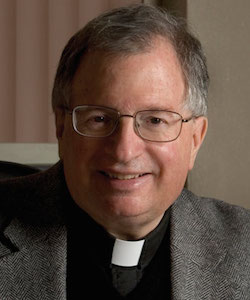
Development Challenges and Global Governance: The Long View
Joel Hellman | September 11, 2015
Responding To: SFS Dean Inaugurates Georgetown's Discussion of Global Governance
Emmanuel Foro
Joel Hellman makes a remarkable point by asking key questions and inviting developers to re-think every aspect of their evaluation and planning. He asks: How do you measure results when progress is likely to be so slow, incremental, and always at risk of reversal? How do you transform reforms that should be measured in decades, but by necessity need to be encapsulated into projects and budgets implemented in the course of three, five, or at most seven years?
Taken as key actors thus ‘governors’ in this work of solidarity, foreign policies of powerful nations in this Hellman proposal must join hands with the Catholic “option for the poor.” Fragility studies help design specific rules for the most vulnerable states or sections of world population. I wish to illustrate this with the current case of Burkina Faso who is dealing with its seventh coup d’état -including two popular uprisings – beginning in 1966. It comes out handy to confirm that calculations are severely compromised by the political instability and the risk of interruption and radical reversal of programs initiated by previous governments. With military troops still surrounding the capital city, the country is narrowly avoiding the eighth coup in fifty years. Use of statistics brings us to an average political stability of about seven years. Only short term plans are permitted in this context while the abrupt reversals often entail general regression. Applying the principle of “special attention to those with special needs” by the global community, the question of development cannot bypass this concern for enduring democratic structures. What kind of education or intervention would foster such political culture? If of seven heads of state in its history only two Burkina Faso presidents were civilians, should this education/intervention towards democracy specifically target the army?
This debate summarizes perfectly the idea and efforts of global solidarities captured in the slogan “think globally and act locally.” Just as theologians often argue for contextual approaches to the discipline, we are bound to opt for “specific answers to specific problems.” Hellman’s voice rings once more the death-bell of ‘Panacea.’ It sounds prophetic in the Burkinabe context: We need to fundamentally rethink the global governance architecture to address the security, timeframe, capacity and institutional challenges of fragile and conflict affected states, which in less than a generation, will be the main source of the world’s extreme poor.
Emmanuel Foro, S.J., is the dean at Hekima College in Nairobi, Kenya, where he also teaches fundamental theology, ecclesiology, and Ignatian spirituality.

Joel Hellman | September 11, 2015

Desha Girod | September 10, 2015

Drew Christiansen | September 10, 2015

Erwin Tiongson | September 10, 2015

Fr. Kevin O'Brien | September 10, 2015

François Pazisnewende Kaboré | September 10, 2015
James Vreeland | September 10, 2015

Justin Rattey | September 10, 2015

Katherine Marshall | September 10, 2015

Marc Busch | September 10, 2015

Marion Abboud | September 10, 2015

Patrice Ndayisenga | September 10, 2015

Tobias Vestner | September 10, 2015

Shareen Joshi | September 9, 2015